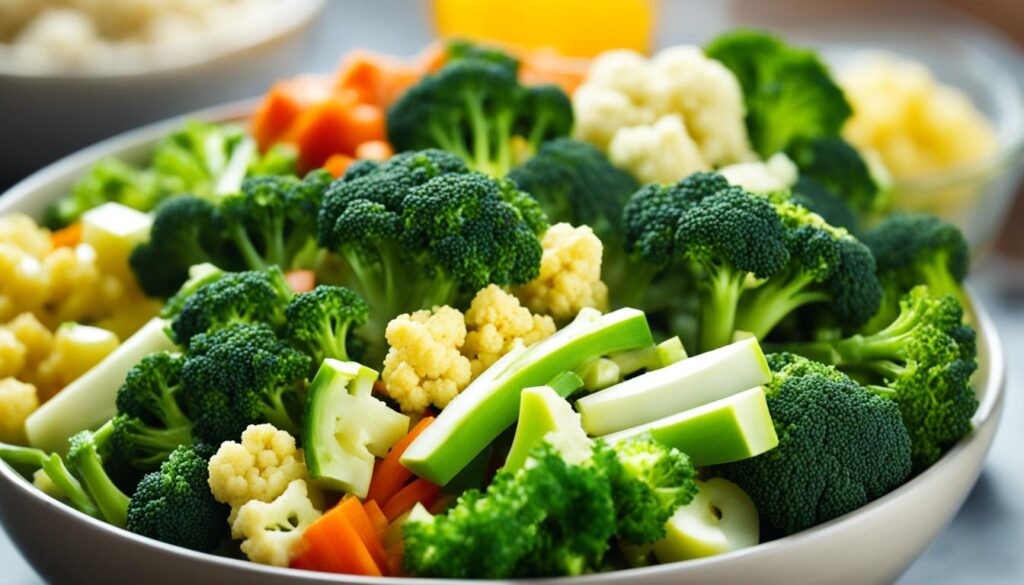Can Breast Milk Cause Gas? Possible Causes and Solutions
“Can Breast Milk Cause Gas” is a question many new parents ask, especially when they notice their newborns experiencing discomfort and fussiness due to gas. Signs that your breastfed baby might be dealing with excess gas include frequent burping, spitting up, having a bloated stomach, increased flatulence, and behaviors like arching their back or pulling their legs toward their stomach. The causes of gas in breastfed babies often relate to factors such as rapid gulping during feeding, constipation, excessive crying, and elements of the mother’s diet.
Foods high in fiber, fruits, vegetables, garlic, dairy products, and carbonated drinks can sometimes lead to increased gassiness in infants. Fortunately, there are various methods to alleviate gas in babies, which include ensuring they burp more often, holding them upright more frequently, participating in tummy time, gently moving their legs in a bicycle motion, massaging their abdomen, improving their latching technique during breastfeeding, and exploring different remedies or treatments.
Skip To The Following Sections
Key Takeaways:
- Excess gas in breastfed babies is common and can cause discomfort.
- Signs of gas in breastfed babies include burping, spitting up, a bloated tummy, excess flatulence, and baby arching their back or drawing their legs towards their tummy.
- Gulping while feeding, constipation, crying, and the mother’s diet can contribute to gas in breastfed babies.
- Foods like fiber, fruits, vegetables, garlic, dairy, and carbonated beverages may increase gassiness in breastfed infants.
- Relieving gas in breastfed babies can be done through burping, holding them in an upright position, engaging in tummy time, doing bicycle exercises with their legs, massaging their tummy, adjusting the latch while breastfeeding, and trying different remedies or treatments.
Signs Your Breastfed Baby is Gassy
If you suspect that your breastfed baby is experiencing excess gas, there are several signs you can look out for:
- Burping: Your baby may require frequent burping during and after feeding.
- Spitting up: Excessive gas can cause your baby to spit up more frequently.
- Bloated tummy: A distended abdominal area may indicate gas accumulation.
- Excess flatulence: If your baby passes gas frequently, it could be a sign of gassiness.
- Arching back or drawing legs towards tummy: These movements can indicate discomfort from trapped gas.
Recognizing these signs will help you identify if your breastfed baby is experiencing gas-related discomfort. It is important to note that gas is a normal occurrence for babies and can be managed effectively with the right strategies.
Relieving Gas in Breastfed Babies
Once you have identified that your baby is gassy, there are several remedies you can try to help provide relief. These include:
- Ensure proper burping: Burp your baby frequently during and after feedings to release trapped gas.
- Hold in an upright position: Keeping your baby upright can help prevent gas from accumulating in their digestive system.
- Engage in tummy time: Encourage your baby to spend time on their tummy, which can alleviate gas and promote healthy digestion.
- Try bicycle exercises: Gently moving your baby’s legs in a bicycling motion can help relieve gas and promote bowel movements.
- Massage the tummy: Using gentle circular motions, massage your baby’s tummy to help alleviate gas and promote digestion.
- Adjust breastfeeding latch: Ensuring your baby has a proper latch while breastfeeding can reduce the intake of air, thus reducing gas.
- Try different remedies: There are various gas-relieving products available, such as over-the-counter medications, drops, or herbal remedies. Consult with your pediatrician before using any of these products.
By implementing these remedies, you can help provide relief for your gassy breastfed baby and improve their overall comfort. Remember to consult with your pediatrician if you have any concerns or if your baby’s gassiness persists.
Causes of Gas in Breastfed Babies
Gas in breastfed babies can be attributed to several factors:
- Gulping while feeding: Baby may swallow air while feeding too quickly, leading to gas build-up.
- Constipation: Infrequent bowel movements or hard stools can cause discomfort and gas.
- Crying: Excessive crying can lead to swallowing air, contributing to gas problems.
- Mother’s diet: Certain foods in a breastfeeding mother’s diet, such as fiber, fruits, vegetables, garlic, dairy, and carbonated beverages, may pass through breast milk and contribute to gassiness in the baby.
To better understand what’s causing gas in your breastfed baby, it’s essential to monitor their feeding habits, bowel movements, and overall behavior. This will help you pinpoint specific triggers and take proactive steps to alleviate their discomfort.
When you notice signs of gas in your baby, such as fussiness, restlessness, or excessive flatulence, it’s important to address the issue promptly. By identifying the underlying causes and making appropriate adjustments, you can help your baby find relief and improve their overall feeding experience.
Foods That Make Breastfed Babies Gassy
While it is not commonly linked, there are certain gas-inducing foods that could potentially contribute to excess gas in breastfed babies. These foods include:
| Foods to Avoid | Alternative Options |
|---|---|
| Dairy Products: Cow’s milk, cheese, and yogurt | Plant-based milk alternatives like almond milk or oat milk |
| Cruciferous Vegetables: Broccoli, cauliflower, and cabbage | Leafy greens like spinach or kale |
| Spicy Foods: Chili peppers, hot sauces, and curry | Mildly seasoned dishes |
| Legumes: Beans, lentils, and chickpeas | Other protein sources like lean meats or fish |
| Certain Fruits: Citrus fruits, apples, and cherries | Berries, bananas, and pears |
| Carbonated Beverages: Soda, sparkling water, and energy drinks | Plain water or herbal teas |
Remember, every baby is different, so it’s important to observe your little one’s reaction to certain foods and make adjustments accordingly. If you notice that your baby becomes particularly gassy after consuming a specific food, it may be best to avoid it while breastfeeding. Consulting with a lactation consultant or pediatrician can also provide valuable guidance in managing your baby’s gas issues.

Remedies for Gassy Breastfed Babies
If you notice that your breastfed baby is experiencing discomfort from gas, there are several remedies you can try to relieve their symptoms and help them feel better. These remedies are safe and gentle, and they can provide much-needed relief for your little one.
1. Burping Twice: After each feeding, make sure to burp your baby not just once, but twice. This can help release any trapped gas in their tummy, reducing discomfort and preventing excessive gas buildup.
2. Massage Their Tummy: Gently massaging your baby’s tummy in a circular motion can help stimulate their digestive system and relieve gas. Use light pressure and be careful not to press too hard.
3. Adjust Breastfeeding Positions: Changing breastfeeding positions can help reduce the amount of air your baby swallows while feeding. Experiment with different positions, such as the football hold or side-lying position, to find what works best for your baby.
4. Try Gas-Relieving Techniques: There are a few techniques that can provide relief for gassy infants. For example, you can try gently moving your baby’s legs in a bicycle motion or holding their knees to their chest briefly. These movements can help relieve gas by stimulating their digestive system.
5. Consider Probiotics: Probiotics are beneficial bacteria that can promote a healthy gut environment and may help reduce gas in breastfed babies. Speak to your pediatrician about whether probiotics are recommended for your baby and which specific ones to use.
6. Adjust Your Diet: Some breastfeeding mothers find that certain foods in their diet can contribute to their baby’s gas. Pay attention to your own diet and consider avoiding or reducing foods that are known to cause gas, such as broccoli, onions, beans, and carbonated beverages.
7. Consult with Your Pediatrician: If your baby’s gas persists or seems to be causing them significant discomfort, it’s always a good idea to consult with your pediatrician. They can provide additional guidance and ensure that there are no underlying issues contributing to your baby’s gassiness.
By implementing these remedies, you can help relieve gas in your breastfed baby and provide them with much-needed comfort. Remember, every baby is unique, so it may take some trial and error to find the remedies that work best for your little one.
FAQ
Can breast milk cause gas in babies?
Yes, breast milk can contribute to gas in babies. Gas is a common issue that many newborns experience, causing discomfort and fussiness. The way the baby is breastfeeding, the mother’s diet, and other factors can all play a role in the amount of gas a baby experiences.
What are the signs that my breastfed baby is gassy?
Signs that your breastfed baby may be gassy include burping, spitting up, a bloated tummy, excessive flatulence, and the baby arching their back or drawing their legs towards their tummy.
What are the causes of gas in breastfed babies?
Gas in breastfed babies can be attributed to factors such as gulping while feeding, constipation, crying, and the mother’s diet.
Are there any foods that can make breastfed babies gassy?
While it is not commonly linked, certain gas-inducing foods like fiber, fruits, vegetables, garlic, dairy, and carbonated beverages may contribute to gassiness in breastfed infants.
What remedies are there for gassy breastfed babies?
There are several effective ways to help relieve gas in breastfed babies and alleviate their discomfort. Some remedies to try include burping twice, holding them in an upright position, engaging in tummy time, doing bicycle exercises with their legs, massaging their tummy, adjusting their latch while breastfeeding, and trying different remedies or treatments.




